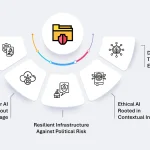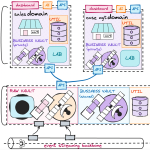
Science and technology play an essential role in the overall development of any country, helping to grow both economies and service offerings, while improving quality of life across society.
Scientific knowledge is indispensable to human progress, providing solutions such as finding cures for diseases and creating energy sources. Furthermore, scientific advances help reduce poverty while opening doors to new opportunities for people.
Definition
Science and technology are often confused, yet each has distinct definitions. Science is the study of natural phenomena through observation, experiment, and analysis while technology involves applying scientific knowledge to provide practical solutions for human problems or improve existing ones.
Oxford Reference provides over 210,000 concise definitions and in-depth, specialist encyclopedic entries on terminology, concepts, theories, techniques, people, places and organizations across science and technology – including astronomy, biology, computer science, electrical engineering mathematics physics. Our expert-reviewed content covers everything from astronomy through biology physics.
Science and technology studies or science and society investigates the relationships among science, technology and society, assessing their mutual effects. This includes looking at how economics, values, ethics, institutions, groups and cultures impact science and technology as well as its development over time. Science and technology work hand-in-hand together, interdependently improving human knowledge while increasing quality of life.
Purpose
Science and technology play an essential part of human life, with society changing rapidly around us and our constant quest for more efficient ways of living our lives.
Science is the study of nature using scientific principles, while technology refers to its application through creating devices which solve problems or fulfill specific tasks. While science tends to focus on principles and universalities, technology seeks solutions tailored to specific situations or tasks.
Fire and the wheel, for instance, led to technological innovations that enhanced agricultural production while making life simpler and facilitating international trade.
Current global challenges such as environmental degradation, explosive population growth, emerging diseases and drug trafficking are driving demand for advanced scientific research. National security concerns have changed how federal funding of science is provided resulting in a significant shift in how scientific research is funded and conducted.
Methods
Science encompasses specific approaches to observing, thinking, experimenting and validating phenomena. Furthermore, scientists use special instruments for collecting, compiling, analyzing and sharing information with colleagues via scientific meetings and journals; their presentations at these venues play a pivotal role in sparking new ideas and scientific advances.
Scientists are highly influenced by their surrounding societies, often conducting research that will help society. Furthermore, scientists’ goals are determined by societal expectations and values; these influences influence what questions scientists pose as well as the approaches they use when answering them. All this helps shape how we conceptualise science; commonly seen as canonical set of characteristics separating science from non-science – yet these views on its methods remain contentious – some scholars focusing on practices rather than methods.
Applications
Science’s greatest contribution lies in its development of communication devices. People can now easily exchange ideas across long distances via these tools, sharing thoughts more quickly than using mailing systems that take too much time to arrive at their destinations.
People today often rely on technology to organize their daily lives. Alarm clocks reminding them of meetings or other activities is just one way that technology helps organize life more efficiently – helping people avoid missing any events altogether!
Science plays a crucial role in solving society’s most pressing issues, from finding cures for specific illnesses to developing cleaner sources of energy.
Science and technology have had a dramatic effect on human life. Therefore, it’s crucial that individuals understand how science and technology works as well as learn to apply it in different areas to improve their daily lives.









